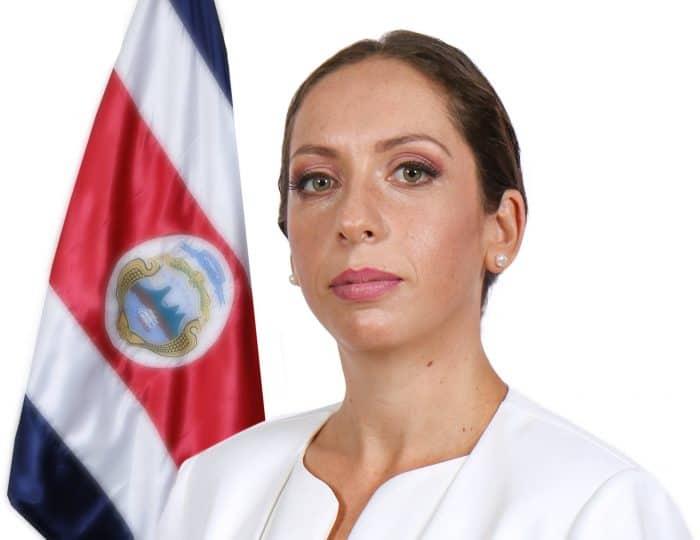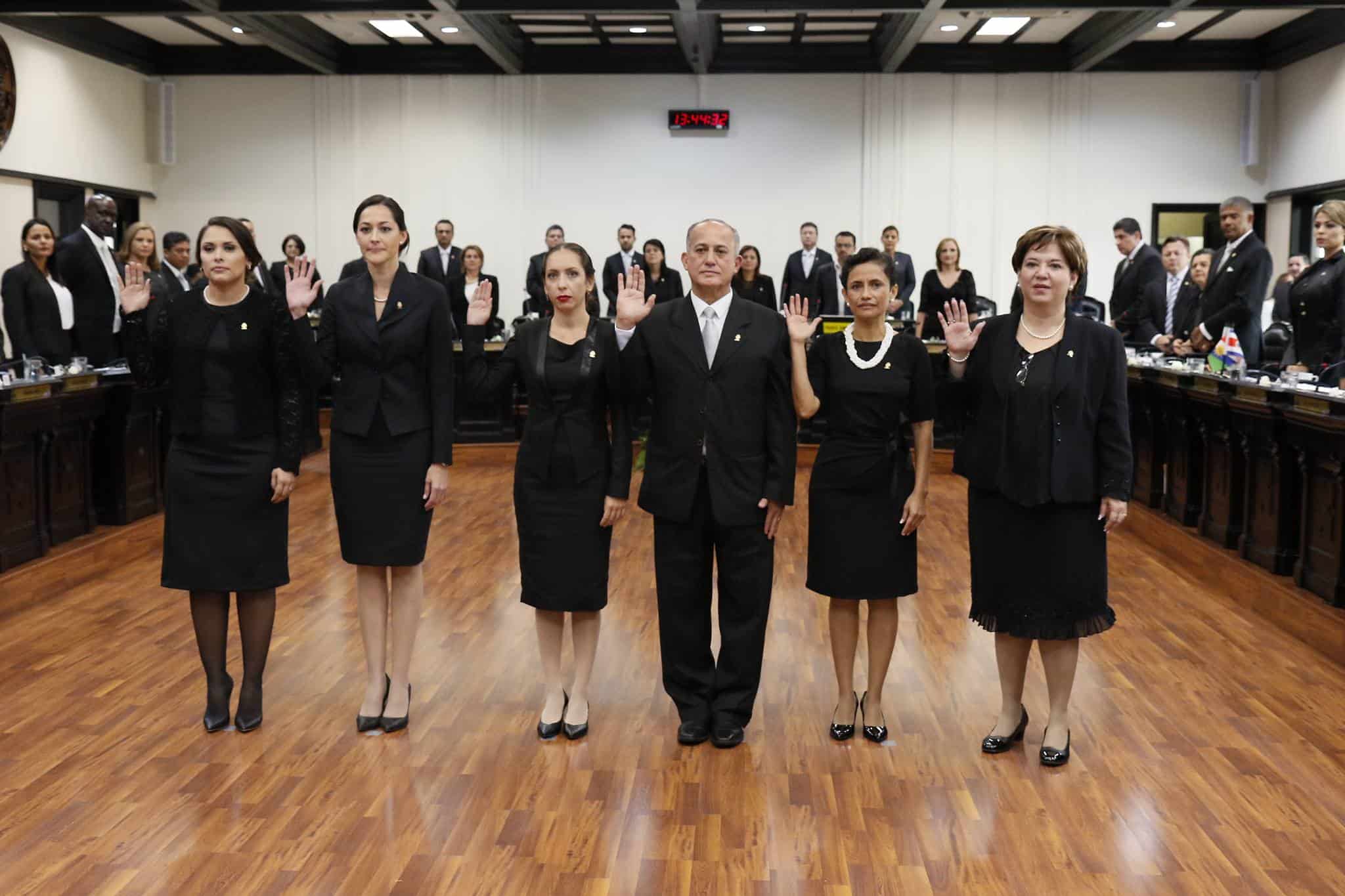The newly elected members of Costa Rica’s 2018-2022 Legislative Assembly began work Tuesday with a clear initial priority: achieving fiscal reform so the country can deal with its massive deficit. The Assembly also elected its six-person legislative directorate, with five women and one man selected for the leadership roles.
In their first session, legislators chose Carolina Hidalgo, from the governing Citizen Action Party (PAC, center left), as president of the assembly. The 35-year-old lawyer is the first woman to preside over the Congress since 2000 and emphasized the importance that the fiscal agenda will have under her management.
She will be joined by legislative vice president María Inés Solís (Social Christian Unity Party, or PUSC), first sectretary Luis Fernando Chacón (National Liberation Party, or PLN), second secretary Ivonne Acuña (National Restoration Party, or PRN), with Yorleny León (PLN) and Shirley Díaz (PUSC) as assistant secretaries.
Hidalgo said that she plans to “listen to all the sectors of the civil society and build a consensus to move the fiscal reform forward, which is a priority for the country.”

Costa Rica has a deficit of 6.2 percent of the gross domestic product (GDP). The last four legislatures failed to approve a fiscal reform to address the deficit.
Meanwhile, thousands of workers from the public sector marched on May 1 in opposition to tax reform, which, according to unions, threatens their labor stability.
“Today, May 1, we say no to the fiscal combo,” read one of the posters during the march rejecting the packet of four projects in discussion to reduce public spending, reducing government hiring and raise taxes.
The new assembly is historic in several ways. It has 14 evangelical legislators among its 57 members, unprecedented in this Catholic country; it has the most women in any congress in the country’s history, with 26 out of 57 members; and now, it has five women on its leadership team.
The evangelical legislators represent the National Restoration Party (PRN), a group that increased its presence in the legislature thanks to the support that evangelical preacher Fabricio Alvarado’s presidential candidature garnered, although he ultimately lost to the PAC’s Carlos Alvarado.
During the election of the new legislative directorate, PRN legislators refused to join a multiparty agreement behind Hidalgo. Instead, the PRN legislators pushed for their founder, Carlos Avendaño, to run the assembly.






